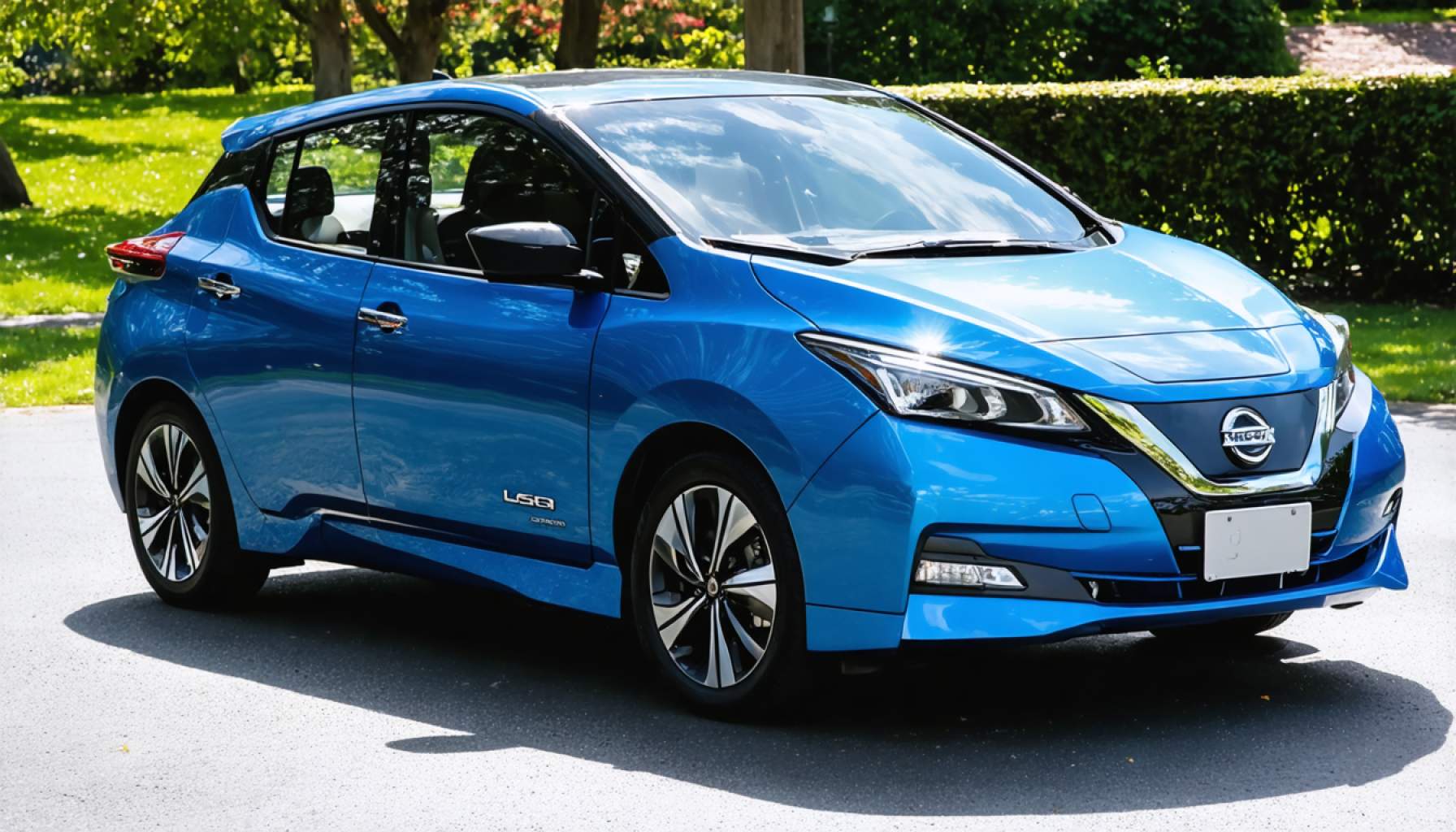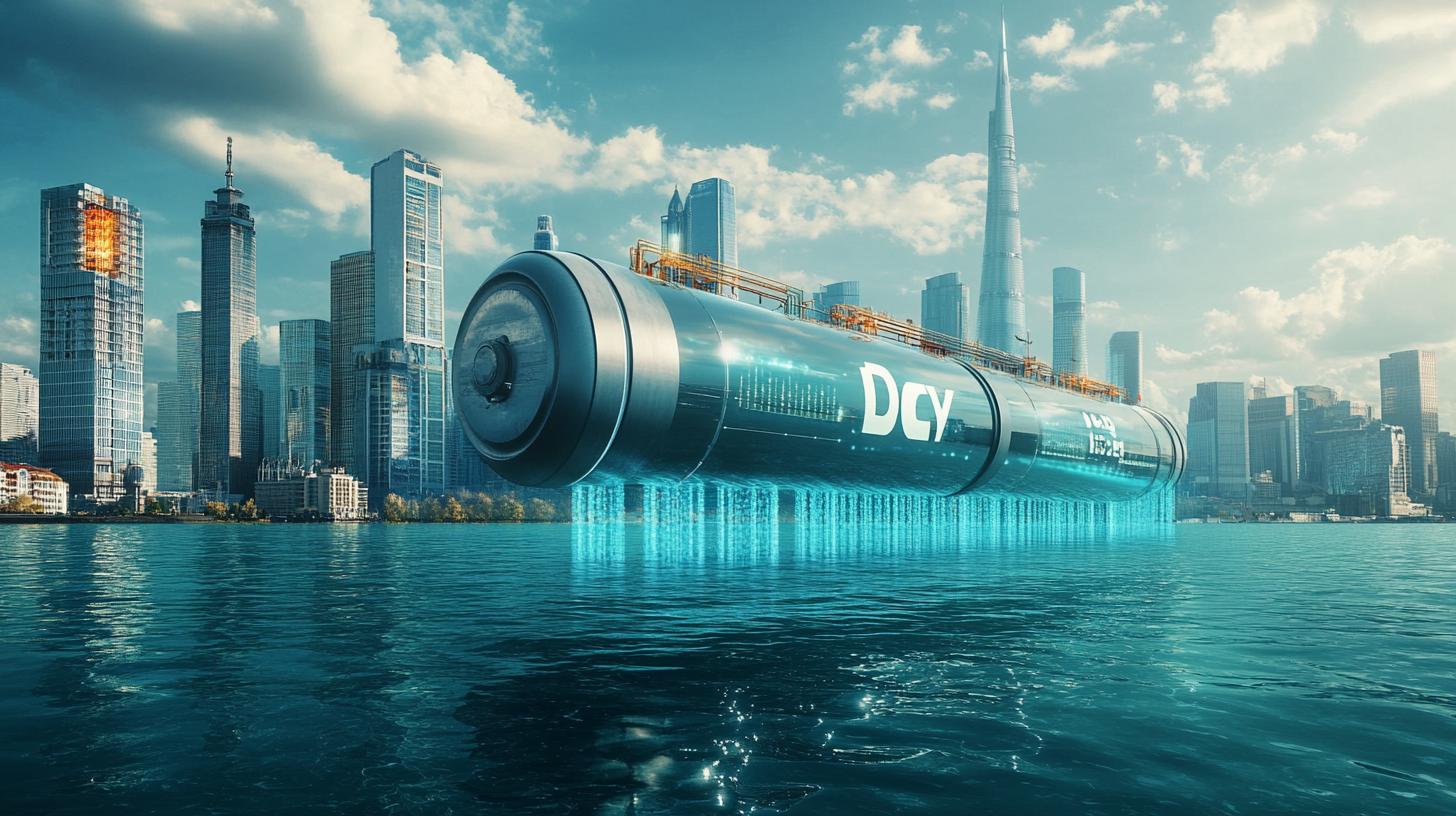- Nissan plans to launch a new lineup of electrified vehicles by 2025, reshaping its electric vision.
- The Nissan Leaf will transform from a hatchback to an SUV-inspired design aimed at the North American market.
- Nissan’s strategy includes introducing a plug-in hybrid by 2025 and a strong hybrid by 2026 to enhance its hybrid lineup.
- In Europe, the compact EV Micra will debut in 2025, focusing on urban design and sustainable performance.
- Nissan’s bold move highlights the importance of innovation for success in the evolving automotive industry.
Prepare for a thrilling ride as Nissan charts a bold new course in the ever-evolving automotive landscape. The revered automaker has revealed ambitious plans to launch an innovative lineup of electrified vehicles by 2025, setting its sights on redefining driving with a fresh electric vision.
Picture this: the iconic Nissan Leaf, a pioneer in the electric vehicle (EV) movement, is undergoing a metamorphosis. Say goodbye to its familiar hatchback silhouette and hello to a sculpted SUV-inspired design that promises to excite the North American market. With curves that echo both strength and sophistication, the new Leaf is slated to be the centerpiece of Nissan’s aggressive strategy to reclaim its position among market leaders.
But it’s not just the Leaf that’s getting a makeover. Nissan’s global strategy sees the addition of versatile hybrid vehicles, an area where it has previously lagged, especially in North America—a region integral to its success. The introduction of a plug-in hybrid model in 2025 aims to reignite consumer interest and spark a revitalization of sales. By 2026, a strong hybrid model will follow, bolstering Nissan’s hybrid credentials and offering customers more eco-friendly choices.
Europe, too, will witness a revolution as the compact EV, known as the Micra, rolls out in 2025. The Micra is set to capture urban hearts with its compact design and efficient performance, embodying Nissan’s commitment to balance style with sustainability in bustling cityscapes.
As the auto industry hurtles towards an electric future, Nissan’s efforts underscore a crucial point: innovation is key to survival and success. Drawing inspiration from its rich history while daring to dream bigger, Nissan is not just adapting to the future—it’s electrifying it.
Electrifying the Future: Nissan’s Ambitious Electrified Lineup by 2025
Nissan’s New Electrification Strategy: What You Need to Know
Nissan is taking formidable steps toward revolutionizing the automotive industry with its fresh wave of electrified vehicles set to launch by 2025. This strategy encompasses not only redesigning its iconic models like the Nissan Leaf but also expanding its hybrid vehicle offerings. Here’s how Nissan is redefining its lineup and what it means for the future.
Key Developments and Market Movements
1. Nissan Leaf’s Transformation:
– Design Shift: The Nissan Leaf, long hailed as a trailblazer in electric vehicles (EVs), is transitioning from its well-known hatchback style to a bold, SUV-inspired design. This shift aims to capture a broader audience, particularly in the North American market, where SUVs are highly popular.
– Performance Enhancements: While specifics are still under wraps, expectations point to improved battery capacities and range, aligning with the growing consumer demand for practical yet sophisticated EVs.
2. Expansion into Hybrid Markets:
– Plug-in Hybrid Launches: By 2025, Nissan plans to introduce a new plug-in hybrid model, followed by a robust hybrid in 2026. These models are designed to appeal to consumers seeking more environmentally friendly options without relinquishing the flexibility offered by conventional vehicles.
– Technological Upgrades: These hybrids are expected to feature Nissan’s advanced e-POWER technology, enhancing fuel efficiency and driving dynamics.
3. Competing Globally with the Micra:
– European Market Focus: Europe is set to welcome the new Nissan Micra in 2025. The compact EV is tailored for urban environments, propelling Nissan further into the competitive compact EV segment.
Industry Trends and Predictions
– Growing Demand for Electric SUVs: The shift to an SUV-inspired Leaf corresponds with a global trend where electric SUVs are seeing increased interest due to their perceived safety and space advantages.
– Hybrid Sales Surge: As more automakers adopt gradual transitions from internal combustion engines (ICE) to all-electric systems, hybrid models remain crucial. These offer an intermediate step for consumers uneasy about going fully electric.
Pros and Cons of Nissan’s New Direction
Pros:
– Diverse Product Lineup: Offering both hybrid and fully electric options affirms Nissan’s commitment to broadening its appeal across different market segments.
– Innovative Design: An SUV-like Leaf has the potential to attract new buyers who favor the versatility of larger vehicles.
Cons:
– Market Competition: Automakers like Tesla and Volkswagen continue to dominate the EV space, presenting stiff competition for Nissan’s revamped models.
– Investment Burden: The financial and resource commitments required for such a massive overhaul may pose risks if market conditions shift unexpectedly.
Insights from Experts
– Electrification Experts: Highlight Nissan’s approach as a strategic move to remain relevant in an evolving market landscape heavily tilted toward sustainability and innovation.
– Market Analysts: Predict that Nissan’s hybrid models could become key contenders in the transition phase towards an entirely electric market, especially if they can balance performance with cost-effectiveness.
Actionable Recommendations
– Stay Informed on Releases: For consumers interested in Nissan’s upcoming models, keeping tabs on press releases or product announcements ensures that potential buyers are well-prepared for the market launch.
– Evaluate Needs: Consider what features, such as range and design, are most important to you as an EV or hybrid vehicle buyer. Nissan’s adaptations cater to a wide variety of preferences.
For more about automotive innovations and how Nissan is electrifying its fleet, visit Nissan’s official site.
With Nissan steering towards a bold and electrifying future, consumers can expect a blend of cutting-edge technology and sustainable choices that illuminate a new path in automotive evolution.











